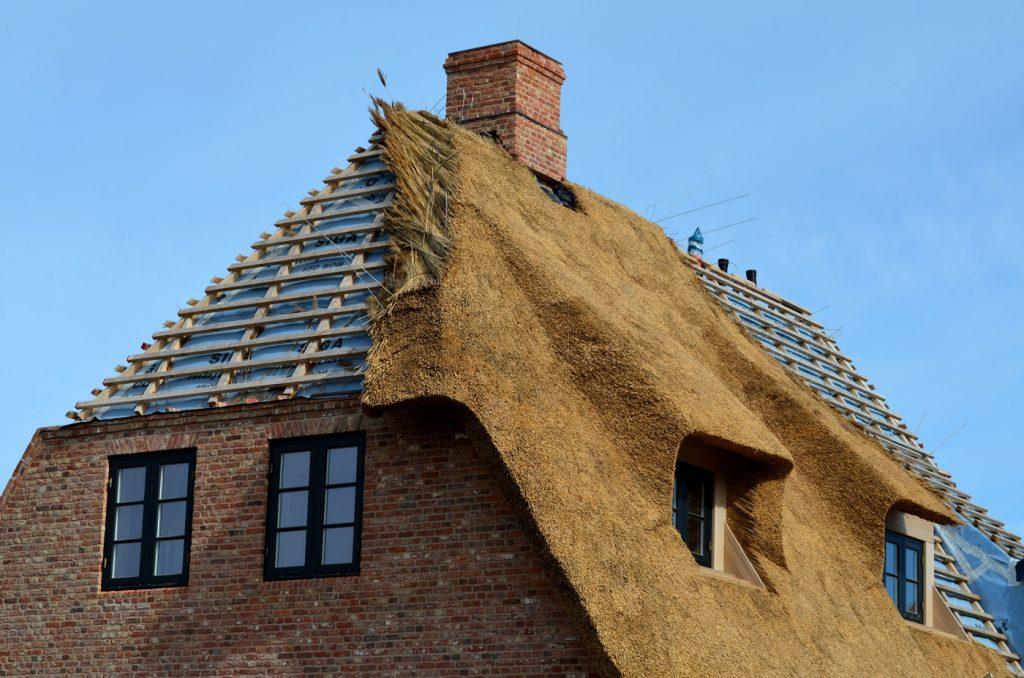Thatched roofs, with their rustic charm and timeless appeal, are a distinctive feature of many homes, particularly in rural areas. However, as beautiful as they may be, thatched roofs require periodic replacement due to wear and tear. In this article, we will explore the factors that influence how much to replace a thatched roof and provide insights into what you can expect in terms of expenses.

Understanding Thatched Roofing
The Unique Appeal of Thatched Roofs
Thatched roofs are constructed using natural materials, typically straw, reed, heather, or rushes, which are layered to create a water-resistant covering. They are renowned for their insulation properties, sustainability, and aesthetic appeal, making them a popular choice for cottages, country homes, and historic properties.
Factors Affecting the Cost of Replacing a Thatched Roof
1. Roof Size and Complexity
The size and complexity of your thatched roof are primary cost determinants. Larger roofs with intricate designs will naturally require more thatching material and labor, increasing the overall cost.
2. Thatching Material
The type of thatching material you choose can significantly impact the cost. Reed thatching tends to be more expensive than straw, heather, or other materials. Your choice may depend on factors such as the local availability of materials and the desired aesthetic.
3. Thatching Style
Thatched roofs can be constructed in various styles, including long straw, combed wheat reed, water reed, and more. Each style requires specific skills and materials, which can influence the cost. Some styles, like water reed, are known for their durability but come at a higher price.
4. Roof Pitch and Shape
The pitch and shape of your roof play a role in the complexity of thatching and the amount of material needed. Steeper roofs or those with multiple angles may require more labor and material, thus increasing costs.
5. Location and Accessibility*
The location of your property and its accessibility to roofing professionals and materials can affect pricing. If your home is in a remote area, transportation costs may be higher, impacting the overall cost of the project.
6. Roof Condition*
The condition of your existing thatched roof can influence costs. If the roof structure is in good shape and only requires re-thatching, the cost may be lower than a complete replacement, which might involve structural repairs.
7. Contractor Experience*
Choosing an experienced and reputable thatcher is essential. While experienced professionals may charge higher rates, their expertise can lead to a more durable and visually pleasing result.
Cost Estimates for Replacing a Thatched Roof
It’s challenging to provide an exact cost for replacing a thatched roof due to the many variables involved. However, as a general guideline, you can expect replacement costs to range from $30 to $70 per square foot. This estimate includes materials, labor, and other expenses.
For a small to medium-sized thatched cottage with a simple design, you might spend between $20,000 and $40,000 on a replacement. However, larger or more complex roofs can surpass $100,000.
Additional Considerations
When budgeting for a thatched roof replacement, it’s essential to consider the following:
1. Maintenance Costs
Thatched roofs require regular maintenance, including re-ridge work and moss removal. Factor in these ongoing expenses when planning your budget.
2. Insurance*
Thatched roofs can affect your home insurance premiums. Be sure to inform your insurer of the replacement or repairs to ensure coverage.
3. Historical and Conservation Regulations*
If your property falls under historical or conservation regulations, you may have restrictions on the type of materials and techniques used for thatching. Compliance with these regulations can impact costs.
Conclusion: A Timeless Investment
While how much to replace a thatched roof can be a substantial financial commitment, it’s an investment in preserving the character and value of your home. Thatched roofs, when properly maintained and replaced, can last for several decades, providing a unique and beautiful covering that stands the test of time. When considering a replacement, consult with experienced thatchers and obtain multiple quotes to ensure you receive the best value for your investment in this timeless roofing style.



Leave a Reply